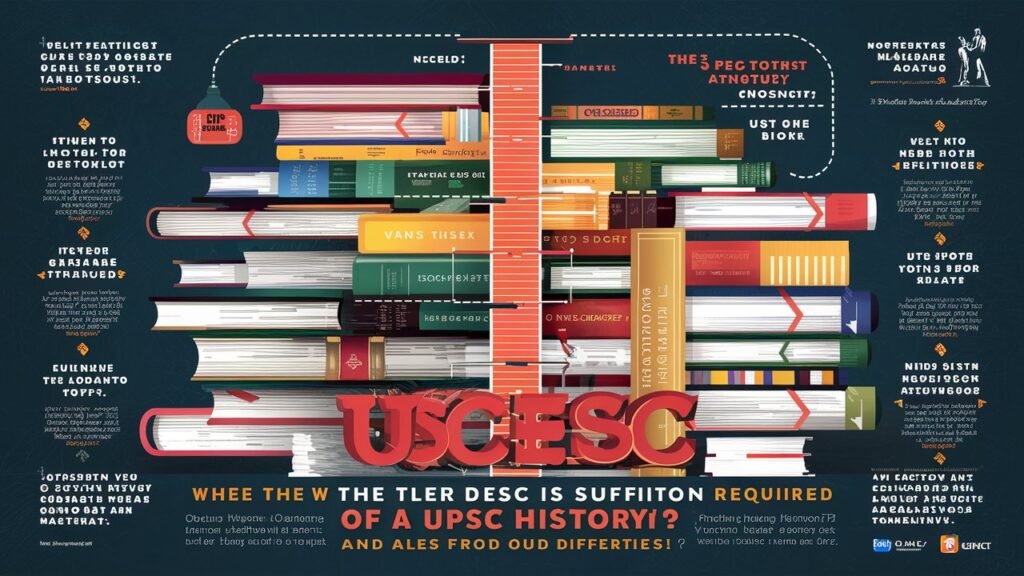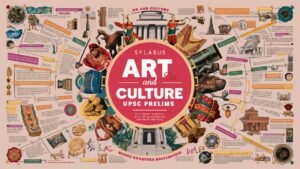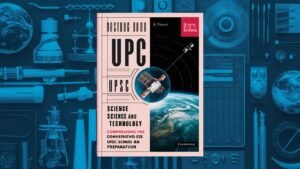
For aspirants preparing for the prestigious UPSC (Union Public Service Commission) examination, mastering the history syllabus is a crucial endeavor. The NCERT (National Council of Educational Research and Training) textbooks have long been regarded as the primary source for studying history. However, the question that often lingers in the minds of aspirants is: “Is NCERT sufficient for UPSC history?”
In this comprehensive article, we delve deep into this query, addressing the nuances, pros, and cons of relying solely on NCERT books for UPSC history preparation. By the end, you’ll have a clear understanding of whether NCERT is enough or if supplementary resources are necessary to excel in the history section of the UPSC exam.
The Importance of History in UPSC
Before we dive into the debate, it’s essential to understand the significance of history in the UPSC curriculum. History plays a pivotal role in the UPSC syllabus, encompassing ancient, medieval, and modern Indian history, as well as world history. A comprehensive understanding of historical events, personalities, and their implications is crucial for aspirants aiming to secure top ranks in the competitive examination.
The NCERT Advantage
NCERT textbooks have long been hailed as the gold standard for UPSC history preparation. These books offer several advantages that make them an attractive choice for aspirants:
- Comprehensive Coverage: NCERT books cover the entire history syllabus prescribed by the UPSC, spanning ancient, medieval, and modern Indian history, as well as significant events in world history.
- Authentic and Reliable Source: The content in NCERT books is meticulously researched and curated by subject matter experts, ensuring accuracy and authenticity.
- Conceptual Clarity: NCERT books are known for their clear and concise explanations, making complex historical concepts easy to understand.
- Examination-Oriented: NCERT books are designed to align with the UPSC syllabus, ensuring that aspirants can focus their preparation on relevant topics.
The Limitations of Relying Solely on NCERT
While NCERT books are undoubtedly valuable resources, relying solely on them for UPSC history preparation may not be sufficient. Here are some limitations to consider:
- Depth and Breadth: NCERT books provide a comprehensive overview of historical events, but they may lack the depth and nuances required for the UPSC examination. As the competition intensifies, aspirants need to delve deeper into specific topics and gain a more nuanced understanding.
- Contemporary and Dynamic Nature of History: History is an ever-evolving field, with new discoveries, interpretations, and perspectives emerging constantly. NCERT books, while reliable, may not always reflect the latest developments and insights in the field.
- Lack of Analysis and Critical Thinking: NCERT books primarily focus on presenting factual information, but the UPSC examination demands a higher level of analysis, critical thinking, and the ability to draw connections between historical events.
- Limited Coverage of Current Affairs: While NCERT books cover historical events thoroughly, they may not adequately address the current affairs related to history, which is an essential component of the UPSC examination.
Supplementary Resources for UPSC History Preparation
To overcome the limitations of relying solely on NCERT books, aspirants should consider incorporating supplementary resources into their UPSC history preparation. Here are some recommended sources:
- Reference Books: Reputable reference books by renowned authors and historians can provide additional depth, analysis, and diverse perspectives on historical events.
- Online Resources: Websites, blogs, and online forums dedicated to UPSC preparation can offer valuable insights, updates, and discussions on historical topics relevant to the examination. Our blog is a great resource for staying up-to-date on current affairs and enhancing your general knowledge.
- Newspapers and Magazines: Regularly reading reputable newspapers and magazines can help aspirants stay informed about current events and their historical context.
- Online Courses and Video Lectures: There are numerous online courses and video lectures available that can supplement NCERT books and provide additional perspectives and analysis from experienced educators and historians.
- Mock Tests and Previous Years’ Question Papers: Practicing mock tests and analyzing previous years’ question papers can help aspirants identify areas where they need to deepen their understanding and seek additional resources.
Striking the Right Balance
While supplementary resources are crucial for comprehensive UPSC history preparation, it’s important to strike the right balance between NCERT books and other sources. NCERT books should form the foundation of your preparation, providing a solid understanding of the core concepts and historical events. Supplementary resources should be used judiciously to enhance your knowledge, gain deeper insights, and stay updated with current developments.
Read Also:
- Daily Current Affairs 2024 for UPSC IAS – InsightsIAS
- What is the Salary of the UPSC Chairman?
- How to Prepare GK for UPSC – Your Ultimate Strategy Guide
Comparison Table: NCERT vs. Supplementary Resources
To better understand the advantages and limitations of NCERT books and supplementary resources, let’s examine a comparison table:
| Aspect | NCERT Books | Supplementary Resources |
|---|---|---|
| Coverage | Comprehensive coverage of the UPSC history syllabus | Provide additional depth and diverse perspectives |
| Authenticity | Authentic and reliable source | Varying levels of authenticity, require cross-verification |
| Conceptual Clarity | Clear and concise explanations | May offer more detailed analyses and interpretations |
| Examination Orientation | Designed to align with the UPSC syllabus | May cover topics beyond the UPSC syllabus |
| Contemporary Relevance | May not reflect the latest developments | Stay updated with current events and research |
| Critical Thinking | Primarily focused on factual information | Encourage analysis and critical thinking |
| Current Affairs | Limited coverage of current affairs related to history | Provide insights into contemporary historical developments |
Key Takeaways
In conclusion, while NCERT books are an indispensable resource for UPSC history preparation, solely relying on them may not be sufficient to excel in the competitive examination. Aspirants should aim to strike a balanced approach by using NCERT books as the foundation and supplementing them with additional resources to gain deeper insights, stay updated with current developments, and enhance their analytical and critical thinking skills.
By incorporating reputable reference books, online resources, newspapers, magazines, online courses, video lectures, and practicing with mock tests and previous years’ question papers, aspirants can navigate the complexities of the history syllabus and increase their chances of success in the UPSC examination.
Read Also:
- Indian Express Today: Important News for UPSC Aspirants
- What is the Full Form of LOL in General Knowledge (GK)?
- How Can I Improve My GK and Current Affairs?
Remember, effective UPSC history preparation is a journey that requires dedication, perseverance, and a strategic approach. By combining

